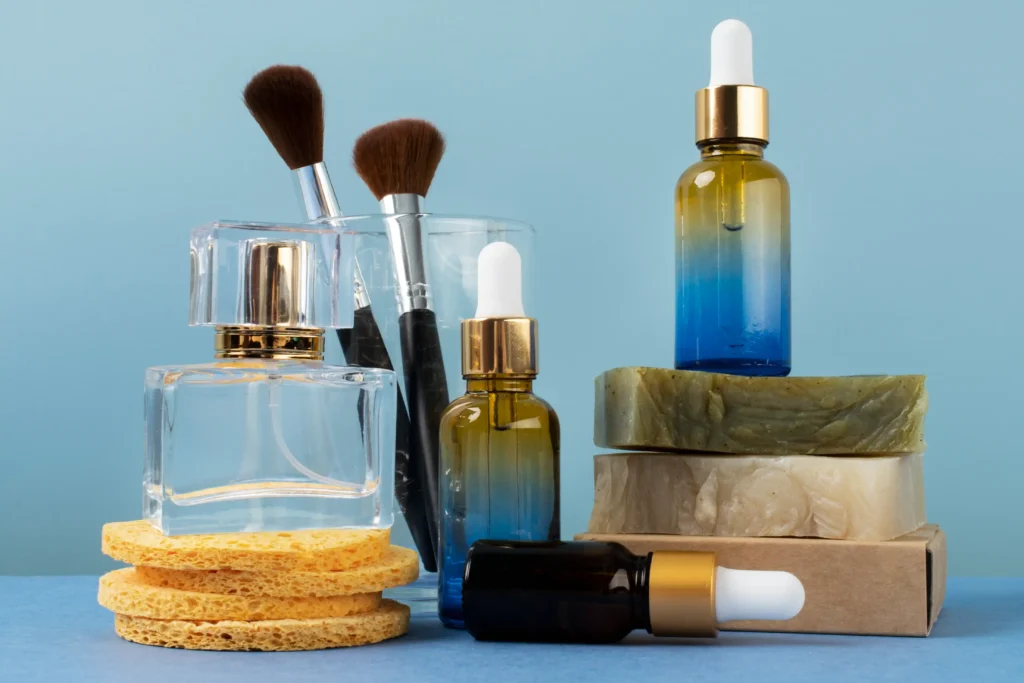Cosmetic manufacturers in the USA are helping thousands of entrepreneurs launch their own beauty brands—many from scratch. Skincare products are trending like never before, but do you know what it really takes to launch your own line?
- Do you need FDA approval for skincare products?
- How do you find reliable cosmetic manufacturers?
- What should your cosmetic packaging include legally?
- How do you write a cosmetic business plan?
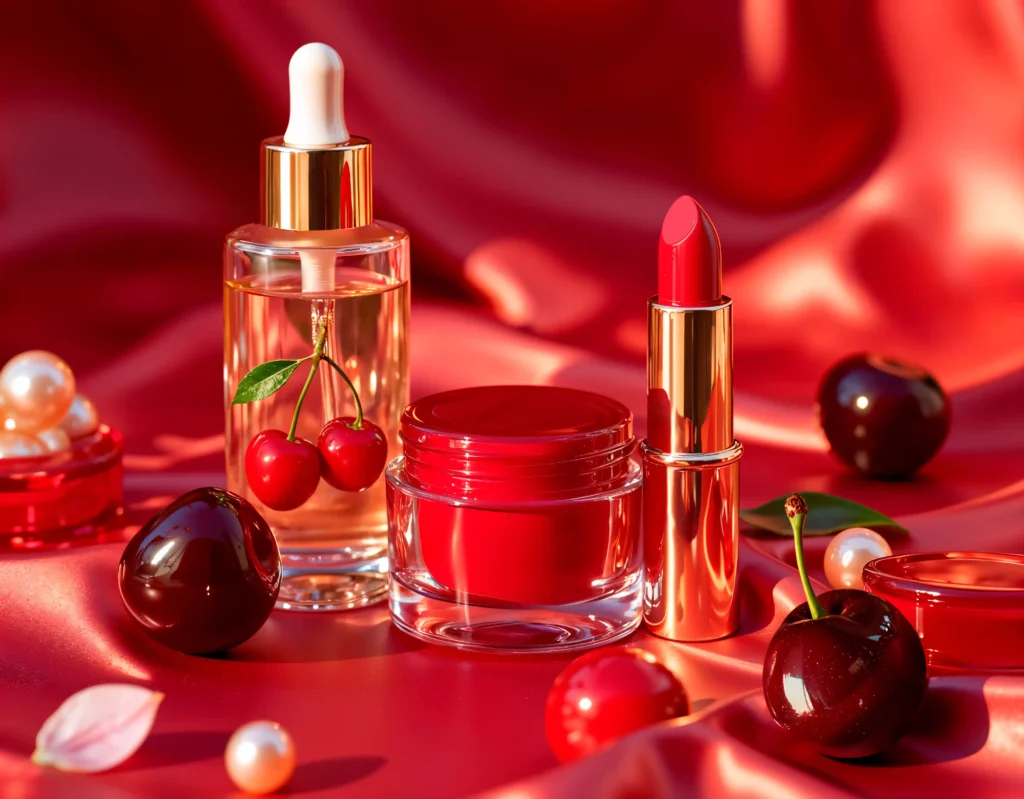
These are the questions every aspiring founder must answer before they start a skincare business. The US cosmetic industry is worth over $100 billion, with skincare products making up nearly 40% of total sales.
From custom formulas to private label skincare USA, today’s entrepreneurs have more opportunities than ever to build their own cosmetic brand.
But entering the industry without understanding cosmetic labeling requirements USA, cosmetic factories, and the cosmetic product development process can lead to costly mistakes.
Whether you’re a chemist, an influencer, or a stay-at-home parent with a great idea, this guide will walk you through how to do it right.
With help from trusted platforms like Maker’s Row, you’ll learn how to connect with verified US manufacturers and build a product that stands out.
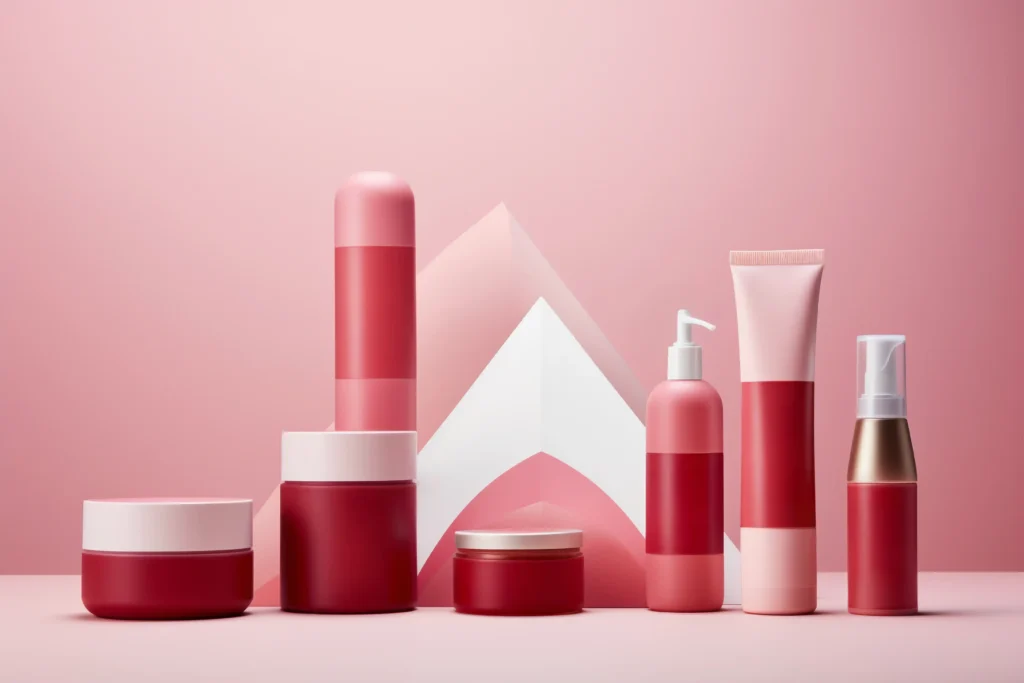
1. Know about the US Cosmetic Market
The US cosmetic market is one of the most competitive and profitable in the world. In 2024, the US beauty and personal care industry was valued at over $90 billion, with skincare products accounting for more than 40% of total sales. This shows the huge demand and steady growth in skincare, making it the best time to enter this space.
However, before launching your cosmetic brand, you must understand who your target customers are. Are you selling luxury anti-aging creams? Or affordable organic skincare products for teens? Knowing your audience will guide your product design, marketing, and price point.
Market research is critical. Study your competitors, check their product reviews, packaging designs, and customer complaints. See what’s missing and how you can fill that gap. For example, if a competing moisturizer gets complaints about being greasy, you could promote yours as lightweight and fast-absorbing.
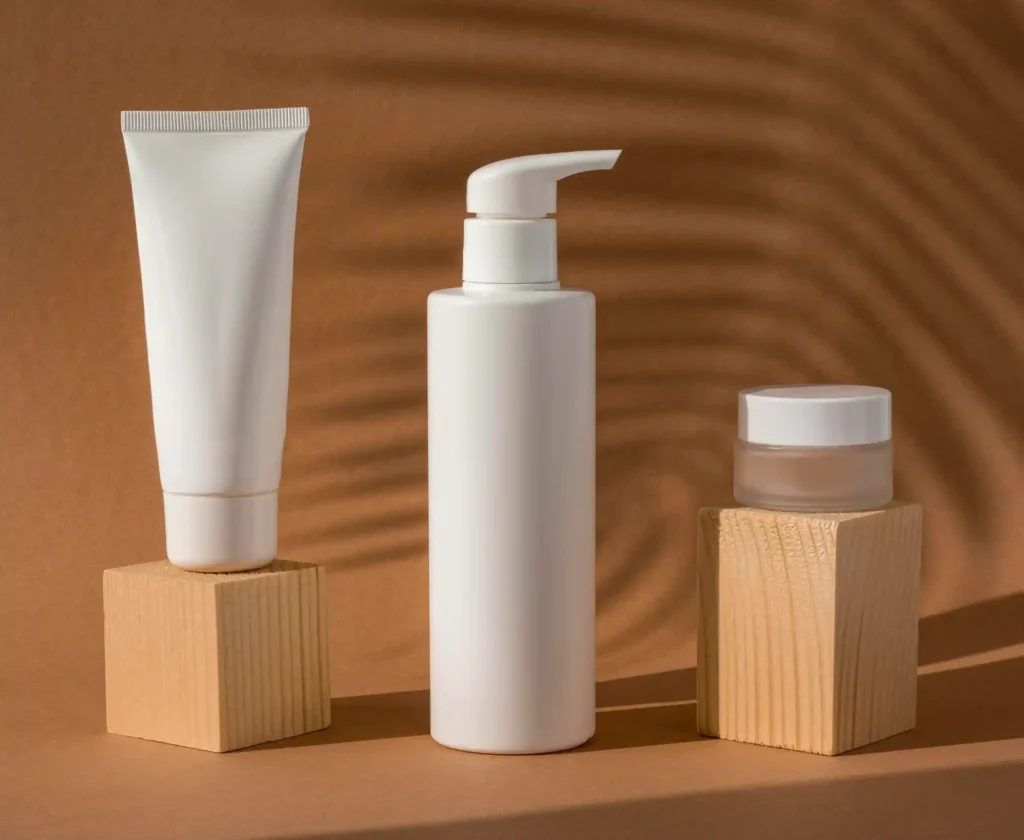
Trends also matter. Right now, there’s a strong shift toward vegan, cruelty-free, clean beauty, and sustainable packaging. If your cosmetic product development includes these values, your brand will have a better chance of connecting with modern consumers.
Also if you want to launch your Korean Cosmetics Manufacturing, Check this Out
Understanding the US market also includes knowing the cosmetic labeling requirements USA has set. These include ingredient lists, warning labels, and product claims. Ignoring these rules can result in product bans or fines. So, learning before launching is not just smart—it’s necessary for success.
2. Choose Between Custom Formulation and Private Label
One of the first major decisions you’ll face is how to develop your skincare products. You can choose between custom formulation or private label skincare USA solutions. Each option comes with its own benefits and challenges, depending on your brand’s vision and budget.
Want to know What is Color Cosmetic: Everything You Need to Know (2025)
➤ Custom formulation means working with labs or cosmetic manufacturers to create a unique product formula from scratch. This gives you complete control over ingredients, texture, scent, and benefits. It’s ideal if you want your skincare brand to offer something truly original, such as a serum using rare botanicals or a lotion tailored for sensitive skin.
However, custom formulation takes time and money. You’ll need R&D support, multiple product testing rounds, FDA compliance, and sometimes clinical trials. The average development time is 6–12 months, and the cost can range from $10,000 to $50,000 per product.
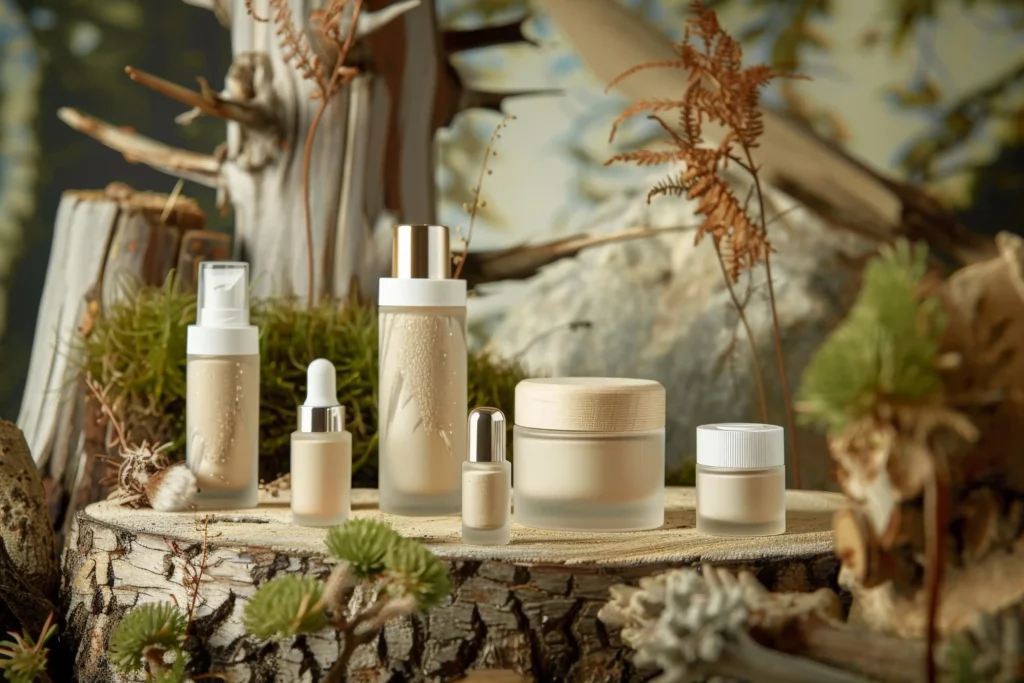
➤ On the other hand, private label skincare USA offers pre-made formulas that you can rebrand as your own. This is a faster and more cost-effective way to start a skincare business. Many cosmetic manufacturers offer ready-to-go skincare products—cleansers, toners, moisturizers, and masks—that are already tested and approved.
For small businesses or first-time founders, private label can be the perfect starting point. You can focus more on branding, packaging, and marketing rather than formulation science. Once your skincare business grows, you can gradually move toward custom formulations to create premium or specialty lines.
Both models work well—it all depends on your brand’s goals and budget.
3. Work With Reliable Cosmetic Manufacturers
Partnering with the right cosmetic manufacturers is one of the most important steps in launching your skincare brand. The quality of your skincare products depends heavily on how and where they are made. This includes not only the formulation process but also cosmetic packaging, labeling, and regulatory compliance.
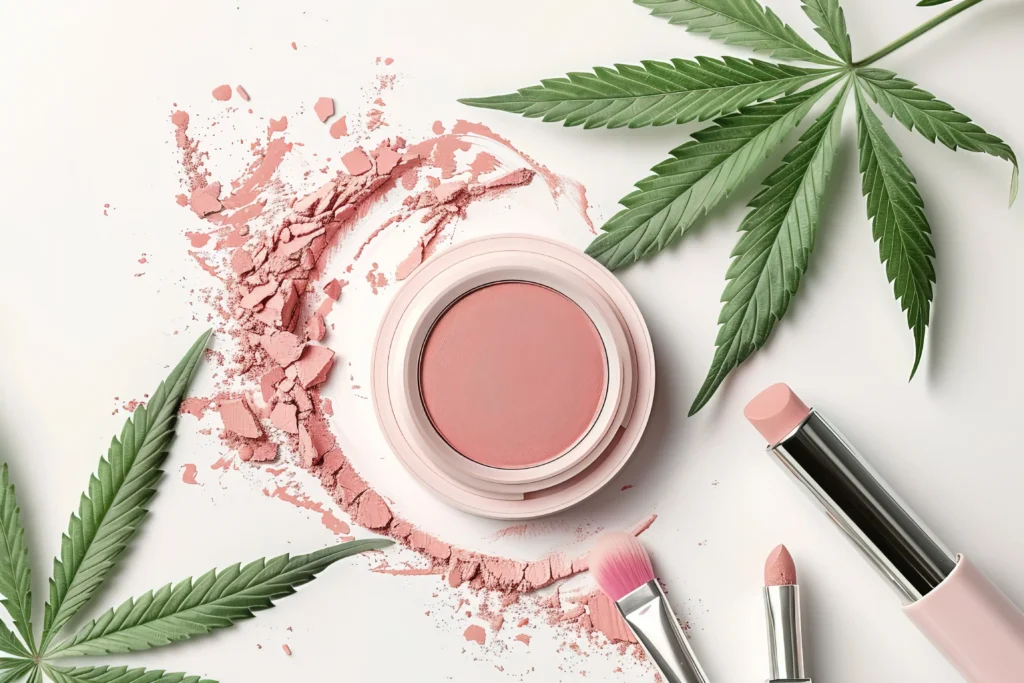
Reliable cosmetic manufacturers offer more than just production. They help you understand cosmetic labeling requirements USA, source safe ingredients, and provide packaging options that reflect your brand. A good manufacturer ensures your product meets FDA standards and industry certifications.
Want to know 18 Best Korean Skincare Brands for ‘Glass Skin’ in 2025 | Read this
➔ However, finding trustworthy cosmetic factories can be a challenge. Many startups struggle to connect with US-based manufacturers that offer both quality and flexibility. This is where Maker’s Row comes in.
➤ Maker’s Row connects small businesses with American manufacturers in skincare, cosmetics, fashion, and more. It simplifies the search process by allowing you to filter by location, specialty, and service type. Whether you need a cosmetic packaging supplier USA, a contract filler, or a label designer, Maker’s Row can help you find experienced partners.
➤ Thousands of US skincare brands have used Maker’s Row to find manufacturers they can trust. If you’re wondering how to start a cosmetic brand without dealing with offshore headaches or language barriers, this platform is your best ally.
It’s also great for maintaining local quality control. Working with US cosmetic manufacturers lets you avoid import delays, customize packaging faster, and ensure your brand supports domestic production.
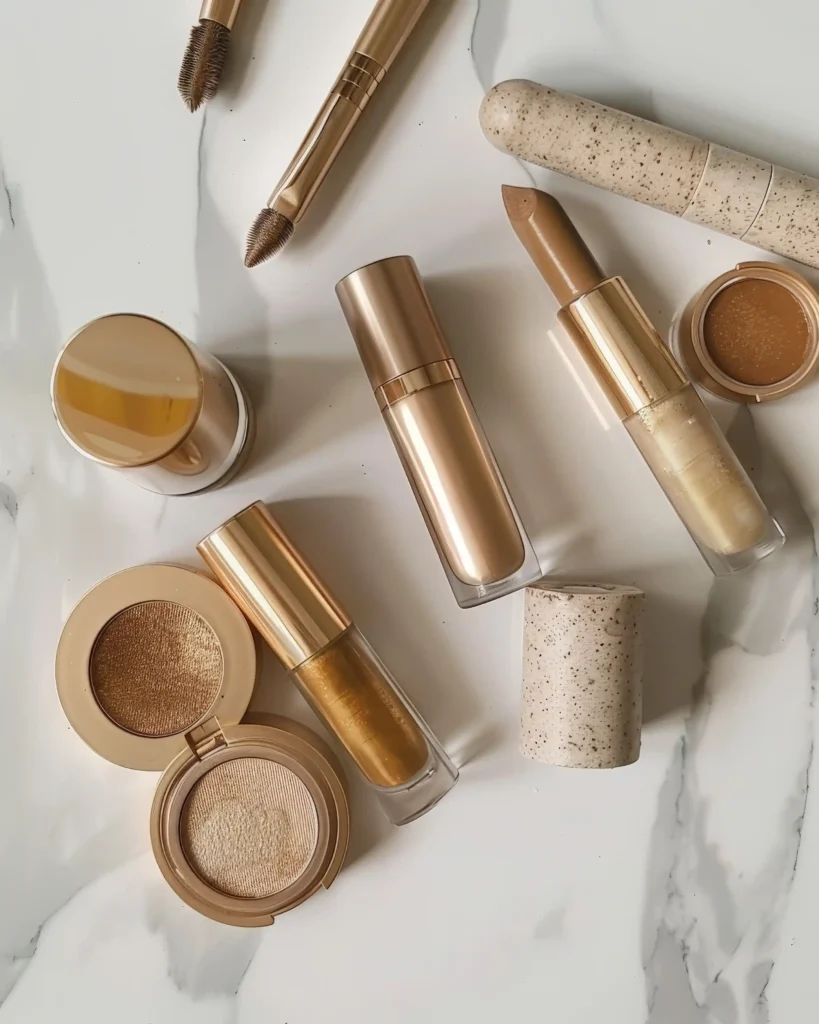
4. Understand Cosmetic Labeling Requirements in the USA
Before you can legally sell any skincare products in the US , you must meet the cosmetic labeling requirements USA mandates through the FDA. Labels are more than just attractive—they must inform and protect consumers. Non-compliance can result in products being pulled from shelves or even legal action.
- So, what must your label include? First, you need the product identity, such as “moisturizer” or “facial serum.” Next, list the net contents, which refers to the amount of product by weight or volume (e.g., 50 ml). Your label must also include the ingredients in descending order, the name and address of the manufacturer or distributor, and any warnings if applicable (e.g., “For external use only”).
- If you’re planning to market your skincare products as having medical benefits—such as treating acne or removing wrinkles—you may step into the “drug” category. That requires even stricter regulations, including FDA approval. Always avoid making unverified health claims.
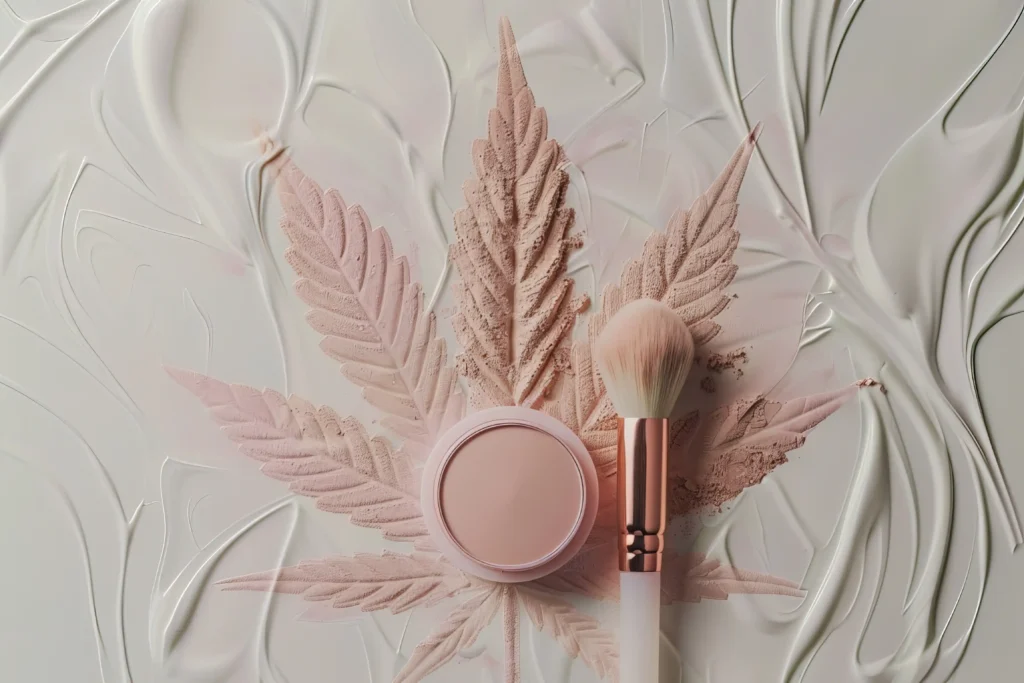
- Moreover, all text on your packaging must be legible, with clear fonts and correct language. Many brands lose credibility due to spelling errors or vague ingredient names. Work with professionals or experienced cosmetic manufacturers who understand these regulations to avoid costly mistakes.
A compliant label not only keeps you safe from legal issues—it builds consumer trust. If people know what’s in your product and who made it, they’re more likely to buy and recommend it.
If you are from Los Angeles , Read this | The Ultimate Guide for Beauty Entrepreneurs
5. Create a Solid Cosmetic Business Plan
Your cosmetic business plan should include:
- Product niche and brand story
- Target market research
- Estimated costs and pricing
- Distribution and sales strategy
- Budget for cosmetic product development and marketing
Example: According to the SBA, businesses with a detailed plan are 30% more likely to grow successfully.
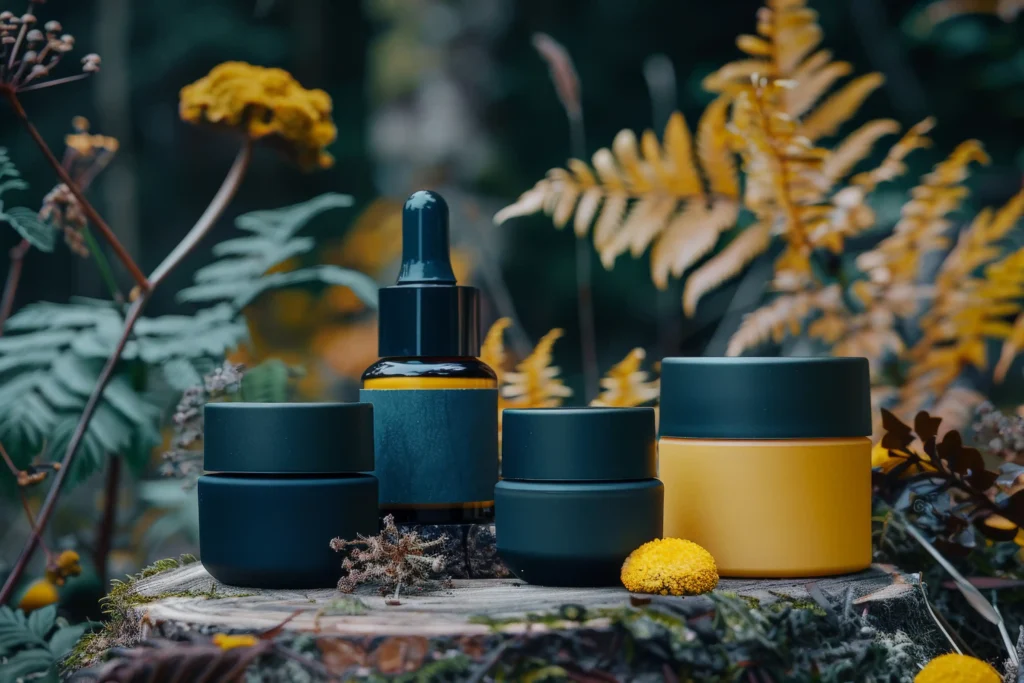
6. Packaging Your Skincare Products Effectively
Packaging is more than just a container—it’s your first impression. For skincare products, packaging plays a critical role in brand perception, safety, and compliance. Your packaging must not only attract buyers but also keep the product fresh and easy to use.
➔ There are two main types of packaging: primary packaging (what touches the product, like a bottle or jar) and secondary packaging (like boxes or sleeves). Both need to reflect your brand’s identity. For example, a luxury brand might use glass jars with metallic accents, while a clean-beauty brand may choose recycled, minimalist packaging.
➔ You also have to ensure your packaging materials are compatible with your product’s formula. Some ingredients degrade when exposed to sunlight or air. That’s why you often see serums in amber glass bottles or airless pumps. Choosing the wrong type could spoil your product before it even reaches the customer.
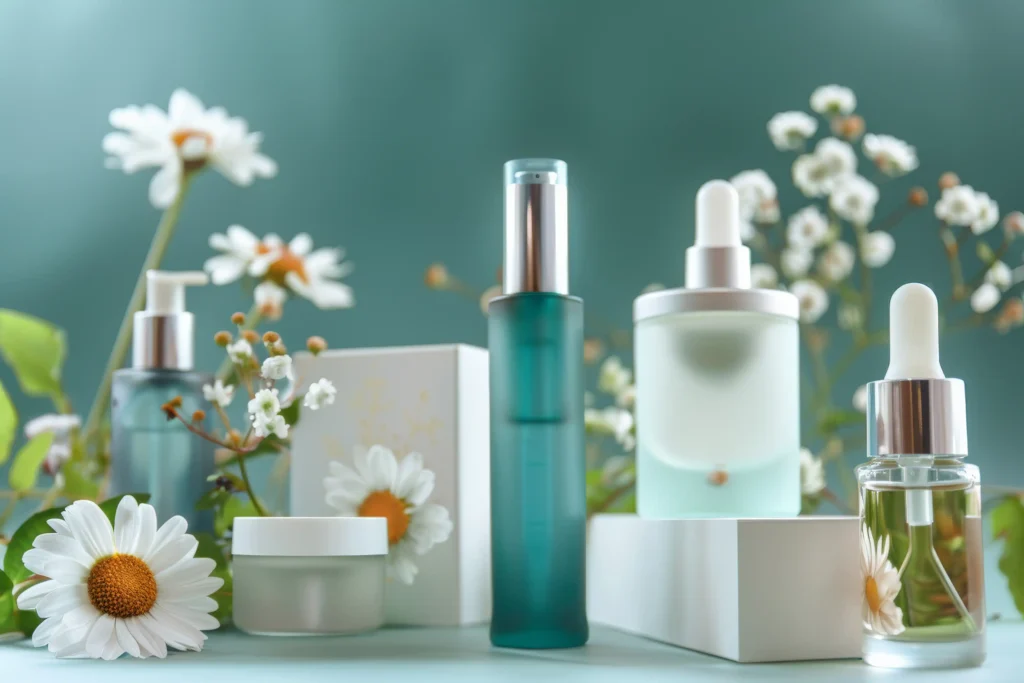
➔ Many cosmetic packaging suppliers USA offer sustainable and eco-friendly options. This is a growing trend. According to a report, 60% of US consumers are willing to pay more for environmentally friendly packaging.
➔ Work with cosmetic manufacturers who also offer packaging solutions or can recommend trusted suppliers. That way, you get consistency across your supply chain. Packaging should also allow space for all legally required information as discussed earlier—ingredients, volume, company name, and warnings.
➔ Packaging influences whether someone picks up your product, reads it, and ultimately buys it. Make it functional, beautiful, and compliant.
Want to know about Top 10 Cosmetic Companies in NJ: Facts, FAQs & How to Get Started | Read this
7. Understand the Product Development Timeline
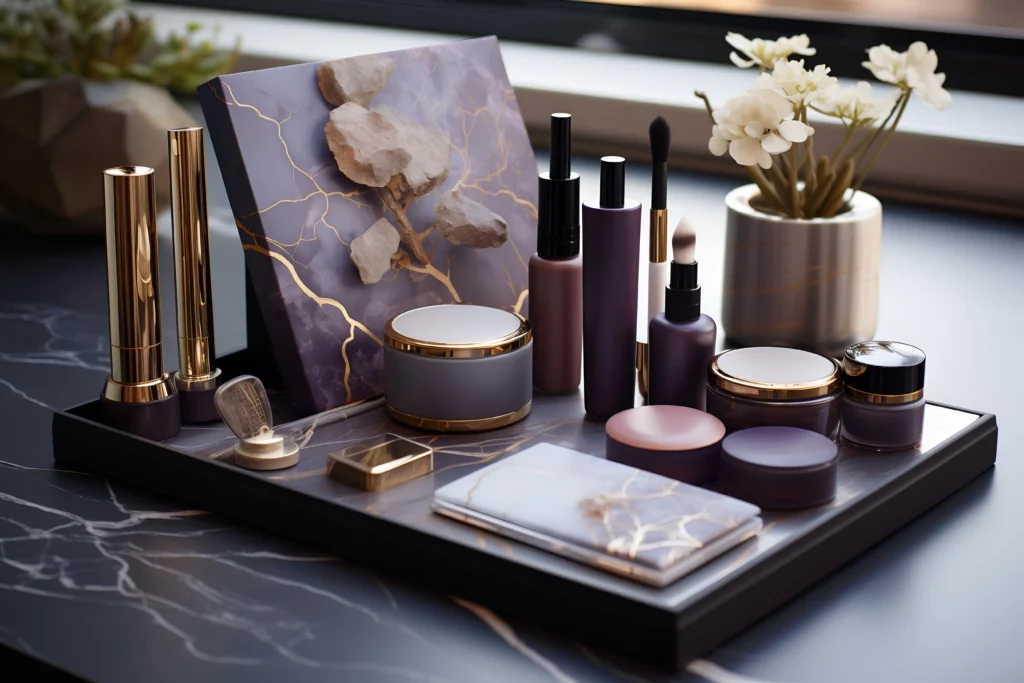
Cosmetic product development takes time. Here’s a typical timeline:
| Stage | Duration |
| Product concept & research | 2–3 weeks |
| Formula creation & testing | 2–3 months |
| Packaging design | 1–2 months |
| Compliance & labeling | 1–2 weeks |
| Manufacturing & QC | 4–6 weeks |
Expect 3–6 months before launch, even with private label skincare USA.
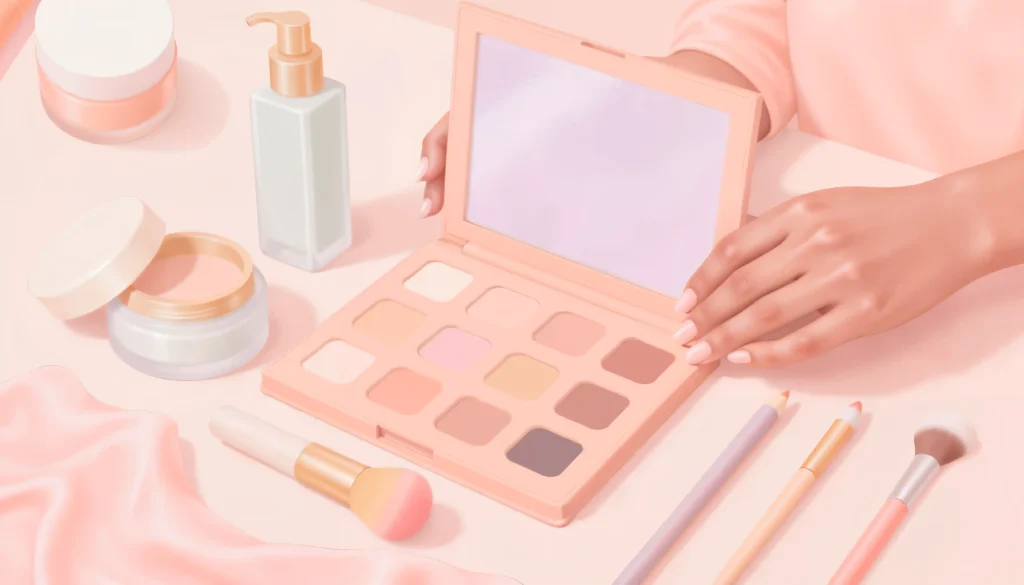
8. How to Sell Skincare Products Legally and Online
You’ve developed your product. You’ve got your labels and packaging ready. So, how to sell skincare products? Selling successfully means following legal steps and choosing the right platforms.
- First, apply for an EIN (Employer Identification Number) and register your business with your state. You may also need a seller’s permit, depending on your state’s tax laws. If you plan to sell skincare products online, you’ll need a strong digital presence.
- Start by building a professional website with product pages, an “About” section, and contact details. Include high-quality images of your skincare products, detailed descriptions, and a FAQ section. This boosts credibility and helps SEO.
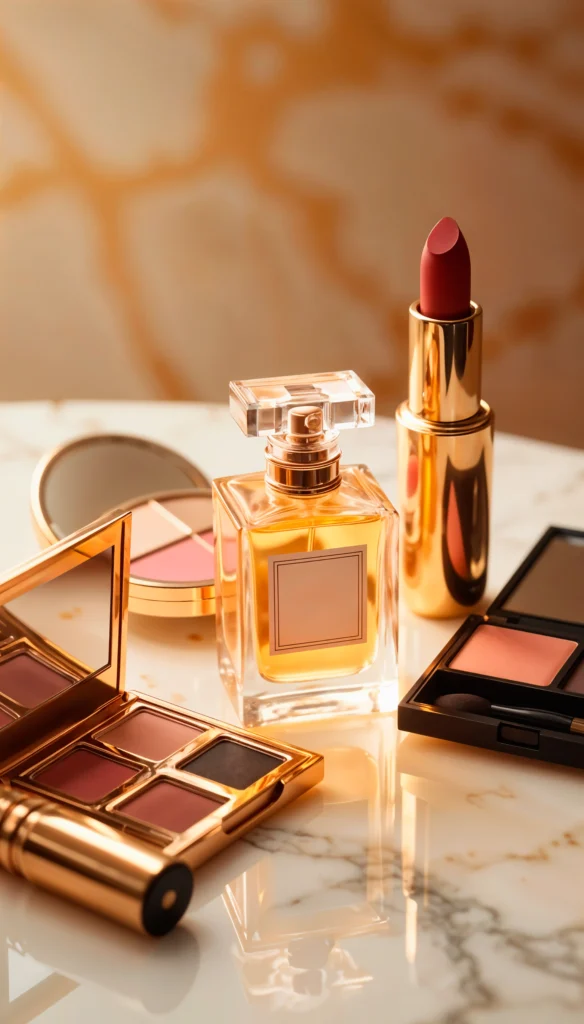
- Next, pick your selling channels. Platforms like Shopify, Etsy, and Amazon Handmade are popular for small skincare brands. Social media platforms like Instagram and TikTok are also powerful for visual storytelling and product demos.
- However, don’t forget product liability insurance. This protects you in case someone has an allergic reaction or a product fails. It’s an essential step in building a safe and professional skincare business.
Your customer trust depends on clear policies—include shipping, return, and privacy policies on your website. Respond to customer questions quickly and collect reviews to build brand authority.
Partnering with experienced cosmetic manufacturers can also help ensure that your products are always in stock, consistent in quality, and ready for scaling.
Legal compliance plus smart digital selling strategies equals long-term success in the skincare industry.
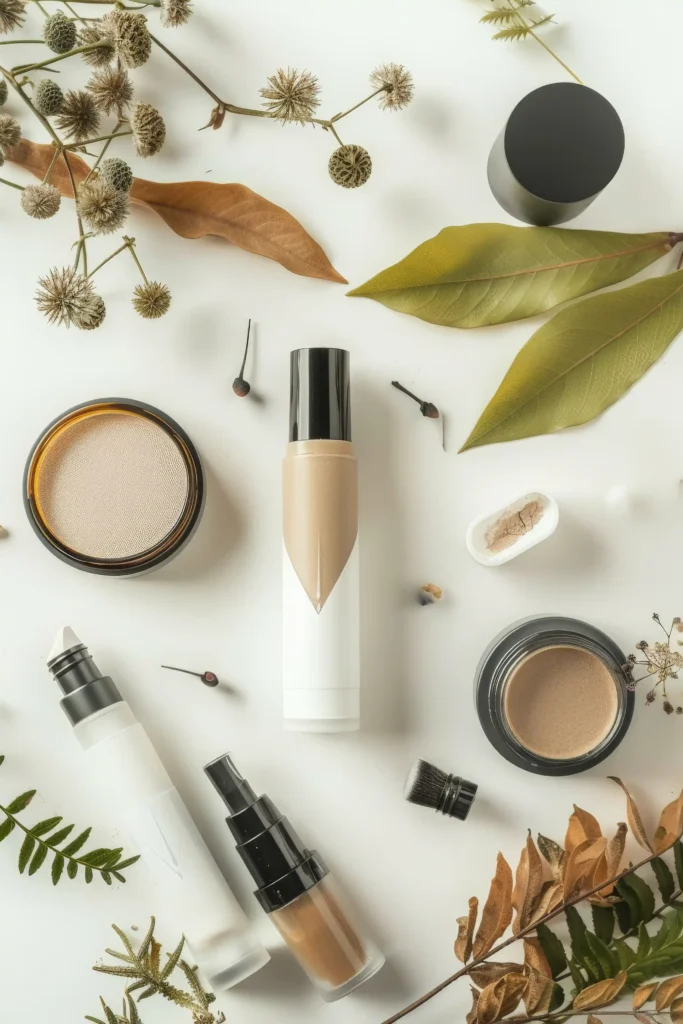
9. How Maker’s Row Can Help
Maker’s Row is a leading platform connecting entrepreneurs with US-based manufacturers and packaging suppliers. If you’re launching a cosmetic brand, Maker’s Row can help you:
➤ Find reliable cosmetic manufacturers
➤ Discover trusted cosmetic packaging suppliers USA
➤ Manage cosmetic product development efficiently
➤ Launch your skincare business faster
Whether you’re planning to sell online or in stores, Maker’s Row offers end-to-end support to help you create premium skincare products with ease.
10. What You Should Know Before Starting Your Cosmetic Brand in the USA: FAQs
Q1: Do I need FDA approval to sell skincare products in the USA?
A: No, unless your product makes drug-like claims. However, your labels must comply with FDA cosmetic labeling requirements.
Q2: What are the best cosmetic manufacturers for startups?
A: Look for those that offer low MOQs (minimum order quantities), private label options, and packaging services. Maker’s Row can help.
Q3: Can I start with one product?
A: Yes. Many skincare brands begin with one hero product, such as a face oil or cleanser.
Q4: How much does it cost to start a skincare business?
A: Budget at least $5,000–$15,000 to cover formulation, packaging, branding, and marketing.
Q5: What are private label skincare products?
A: These are pre-formulated products made by cosmetic manufacturers that you can rebrand and sell as your own.
Q6: How long does it take to develop a product from scratch?
A: Custom formulation can take 6–12 months depending on testing and compliance steps.
Q7: What licenses do I need to sell cosmetics online?
A: Register your business, get a seller’s permit, and consider product liability insurance.
Q8: Can I make skincare products at home and sell them?
A: Yes, but you must still follow labeling and safety guidelines. It’s better to partner with professional manufacturers for scale.
Q9: How important is cosmetic packaging design?
A: Extremely important. It impacts shelf appeal, brand trust, and protects the formula.
Q10: Where can I find local cosmetic factories or suppliers?
A: Use platforms like Maker’s Row to connect with reliable US-based cosmetic manufacturers.
Final Thoughts
Starting a cosmetic brand in the USA can be exciting and rewarding. With the right plan, trusted cosmetic manufacturers, and legally compliant cosmetic packaging, you can bring your vision to life.
Remember to research, test thoroughly, and use reliable partners like Maker’s Row to minimize mistakes. Whether you go the custom route or choose private label skincare USA, building a skincare business is more accessible than ever.
So now that you know how to start a cosmetic brand, it’s time to take action.
